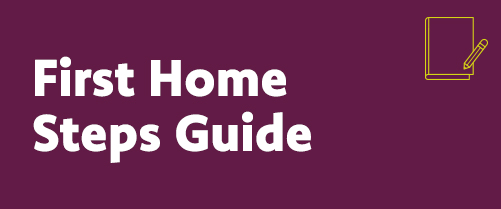How to survive a bidding war
Last updated: 18/04/2023
You find the perfect home; it has everything you need and at a seemingly fair price. The trouble is, you’re not the only house-hunter who has fallen for this particular gem. So, you’re now having to bid against other would-be buyers. Don’t panic. There are some things you can do to increase your chances of having your bid accepted.
Please note: these tips are based on buying a house in England and Wales.
- Consider how much you can afford to spend
- Present yourself as a serious buyer
- Keep your budget private
- Be prepared in case you need to make a sealed bid
- Don’t be afraid to change or withdraw your offer
Have a 'final offer' ready
During the bidding process, if there are a few potential buyers you may be asked to give a 'Best and final' offer. Having a clear idea about the top bracket of your price range from the start will help you understand how much you can afford to bid. Make sure you stick to this, and try not to offer anything over.
You can help improve your chances before you even begin looking for houses.
For a start, it's a good idea to carry out an affordability test to make sure you know exactly how much you can afford to spend. Work out a budget, and then decide the top price you could afford to pay. Use our mortgage calculator to give yourself an idea of how much you could borrow.
From the moment you begin making an offer, try to present yourself as a serious customer. This will show the seller that you’re not going to pull out of the deal. Consider getting a mortgage in principle before you make an offer on a house. A mortgage in principle shows how much money a lender is happy to loan you to buy a house, proving that you can afford to buy. If you find yourself in a bidding war, being able to reassure the seller and the agent that you can borrow enough to buy the property may tip their decision in your favour.
Whether you’re in a one-horse race, or there are multiple buyers bidding on your desired property, never disclose your budget to the sellers or their agents. If agents know the maximum amount you are willing to pay, they may urge the seller to hold out on the sale of the property.
If more than one potential buyer is making an offer on a property, an agent will sometimes ask for a sealed bid. This requires all potential buyers submitting a bid in a sealed envelope by a set date. It may feel very official, but this is not legally binding and any party could still pull out.
It can be difficult knowing how much to offer in your sealed bid, as you don’t want to pay over the odds, nor do you want to lose out to higher bidders.
The last thing you want to do is bid more than the value of the property as this could result in you failing to get your money back if you choose to sell. Your lender may also refuse to lend if they don’t feel the property is worth the value you’re asking for.
When submitting your bid, it’s a good idea to avoid rounding numbers up so your bid is less likely to be the same as another bidder.
Along with your sealed bid, mention anything that might set you apart from the other bidders, and suggest that you are a serious buyer to reassure the sellers that the deal won’t fall through. Include a copy of your mortgage in principle and let them know you want to get things moving as quickly as possible.
Any bid you make is not legally binding. If you find yourself in a bidding war, and you’re worried you’ve bid over the odds, you are able to withdraw your bid. The house sale doesn’t become legally binding until the contracts are signed.
It’s also important that you recognise when the time has come to withdraw your offer. If you feel the bidding war has driven the price of the property up to more than you are willing to pay, then step down from the bidding and look for another property.
What next?
- Use our deposit calculator to work out how to save a deposit for your first home.
- Download our free First Home Steps app for a pocket-guide to budgeting, planning, saving, and buying your first place.
- Explore more blogs in our First Time Buyers hub.
Click on the sections below to explore what you need to know at each stage of your home buying journey:
















